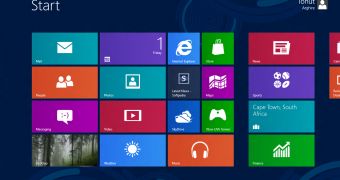Microsoft is approaching the release of Windows 8 fast and, along with that, the availability of the final flavors of applications designed using the platform’s Metro-style philosophy.
The operating system is expected to become generally available sometime in October this year, but we should see the RTM version being pushed out before that.
According to Microsoft, developers should strongly consider applying the latest touches to their software in preparation for Windows 8’s GA, if they want to have apps ready for the big release.
Ever since delivering the Developer Preview of the platform, Microsoft has been hard at work with improving the tools that developers can take advantage of to build their applications.
However, as Windows 8 RTM arrives, there won’t be further updates for these tools, and apps will have to be polished using that code.
“Our next major milestone is the release to manufacturing (RTM). When the code reaches this milestone, the platform is complete for general availability (GA), and so we won’t have interim updates for developers,” Dennis Flanagan, who leads Microsoft’s ecosystem outreach team, notes.
Through the constant updates that Microsoft made available for devs, new capabilities and APIs arrived, as well as a simplified app development process. Moreover, the Redmond-based company has been focused on improving performance and reliability.
“When Developers get the RTM version, they will continue enhancing the features, capabilities and performance of their apps,” Dennis Flanagan continues.
“Some of the apps you’ve already seen will look and perform differently when you download the final released version. There are also many more apps in development that haven’t been released to the Store yet. Many of those developers are waiting for RTM to put the finishing touches on their apps.”
Flanagan also notes that the release of Windows 8, although a great milestone for many developers, will be only one step, and not the final step.
Metro apps will be distributed through the Windows Store, which means that developers will benefit from expanded reach around the world. There will be wide distribution for new apps, and the option to continuously improve software that was already released for the platform.
“As the app developer community evolves, we expect app developers to take advantage of this and provide regular updates to apps,” Flanagan concludes. Learn more on this through the Building Windows 8 blog.

 14 DAY TRIAL //
14 DAY TRIAL //